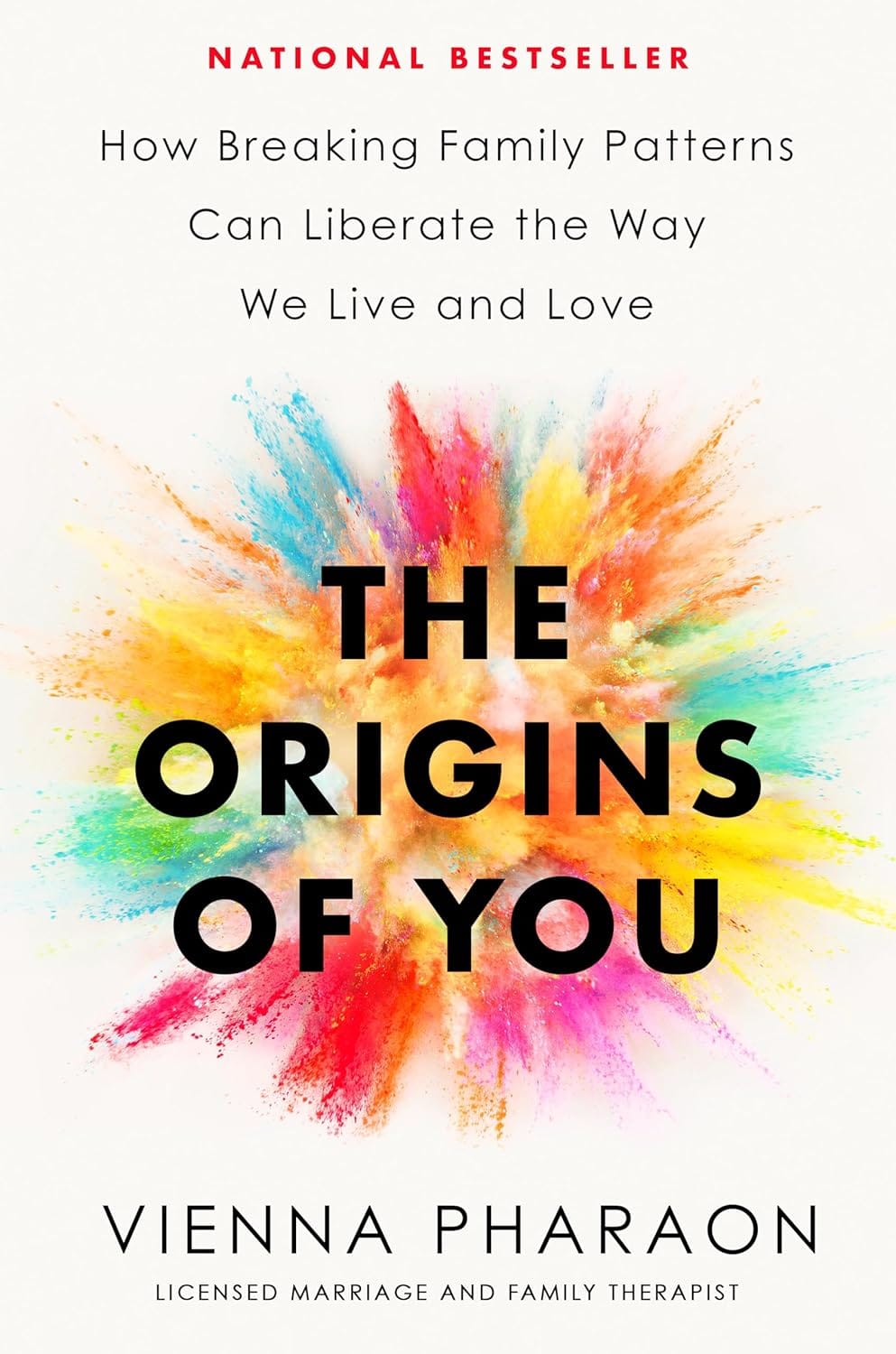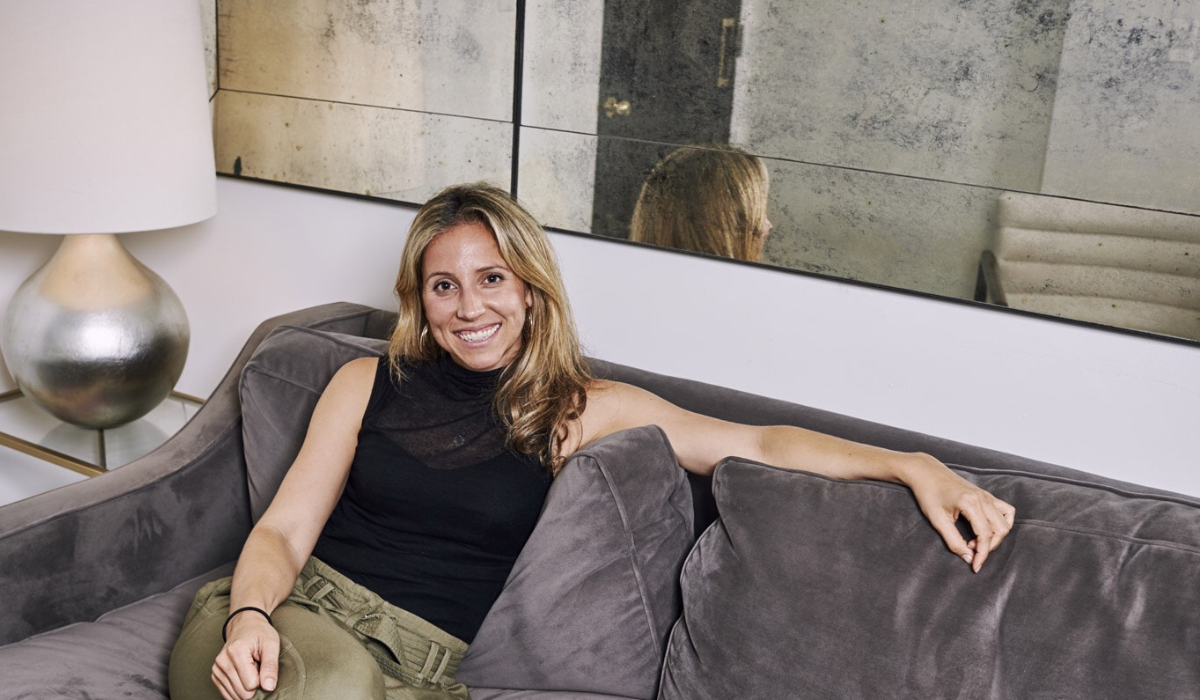Can’t Stand a Loved One’s Politics? Vienna Pharaon, a Renowned Family Therapist, Has the Advice You Need
Differences can feel very separating, says Vienna Pharaon. "It can be really hard even to consider how we could be associated with someone if they feel very differently than we do." Pharaon, a licensed marriage and family therapist, is widely known for helping clients (and her droves of social media followers) approach their relational differences with compassion and maturity.
Humans, of course, have always had differences. But there are situations where these gulfs between our views can feel devastating, and election season—especially one as charged as ours this very moment—is a prime example. It can be hard "to get someone else to agree with you, see your side, or have a civil conversation about it," even when intentions are well-meaning, adds Pharaon about our charged political moment. "I tend to find that it can cause more conflict and agitation, anger, frustration, and disbelief."
This all begs that larger question: What do we do if we can't stand a loved one's politics? We asked Pharaon, and she offered The Sunday Paper her thoughtful advice on things to consider. And if you're hurting or feeling unmoored by a loved one's politics, take heart in knowing you're not alone. "I don't think I've ever met someone who doesn't have a family member who votes differently than they do," says Pharaon. "Everybody has a father, or an aunt, or an uncle, or a cousin, or someone who believes very differently than them—and it can be so upsetting. So it's about how we maintain our peace.”
"Don't Be Surprised by Unsurprising Things."
If you're going into a conversation with a loved one (or anyone) whom you know holds a different political viewpoint than you, step back for a moment and consider: Is bringing this up going to lead us anywhere good? Am I really going to change this person's mind? What do I already know about this situation? "I always say around the holidays, 'Don't be surprised by unsurprising things,' and this can go for voting time," says Pharaon. "If you know you are going into a conversation where you're trying to get a different outcome than the one you know is etched in stone, it might be more harmful to have the conversation."
The Healthier Conversation Might Be No Conversation
In light of the above, choosing not to have a conversation might be the healthier choice. "Attempting to be the person to change someone's mind sometimes leads us down a rabbit hole that can be much more disturbing than the fantasy of what could be." So, venturing away from a conversation that causes more distress sometimes can be the best bet.
Now, Pharaon clarifies that speaking up and advocating for something that's important to you is important. The key, however, is to be mature and mindful of the space in which you do so. "When you have people who are really wedged into a particular position, and these people are loved ones, the question to ourselves has to be, 'Is engaging in this thing going to be more damaging to me?' You must be careful in advocating with someone who fully disagrees with you because it can leave you feeling more hurt, depleted, and afraid." So, be mindful in this space, adds Pharaon. "It really is about bringing a mature part of ourselves forward and letting that part be in the driver's seat."
Be Kind and Smart with Words
Perhaps you've chosen not to engage in discourse with a loved one. Or maybe you feel cornered or pressured to do so. Whatever the situation is, Pharaon says first to be sure you are regulated (more on that below), as chaos always ensues when we're heated. Then consider saying, "I feel like you're really committed to your perspective, and so I feel there's not a lot of room here for us to have respectful discourse." She suggests even adding a sentiment of love to this sentence, such as, "I really love you, and I also know that having this conversation with you just disconnects us further, and I don't want to do that."
Take Really (Really!) Good Care
Things can go haywire when we're dysregulated. We get into a state when our minds are flustered, our nervous systems are taxed, and a fiery heat sits in our chests. This is not a good place to be, Pharaon tells us. "Whether it is you or someone else who is being antagonistic, if we are dysregulated, we've lost," she says. This is why finding some regulation is crucial to get us into a place of balance. Pharaon says this can mean many things: taking deep breaths, holding an object that is grounding, or getting out into nature. Leaning into practice to help you find groundedness before entering a room or conversation with a loved one with whom you disagree, or even before reading a text from them, can be the most healthy, evolved thing to do. "Otherwise," she adds, "we will get enticed to do this dysfunctional dance."
Know This Is a Tough Time—for Everyone
Whatever our views and stances, this is a charged time for all of us. Whatever outcome unfolds, many people will be upset and disappointed, even scared or sad. "It is just really important to take good care of yourself when those results come in," Pharaon reminds us. Because no matter what, it is up to us "to do our best to come together, as opposed to moving further and further apart."

Vienna Pharaon is a licensed marriage and family therapist and one of New York City’s most sought-after relationship therapists. She has practiced therapy for more than fifteen years and is the founder of the group practice Mindful Marriage and Family Therapy. Her book, The Origins of You, is a bestseller. Learn more at viennapharaon.com.
Please note that we may receive affiliate commissions from the sales of linked products.



